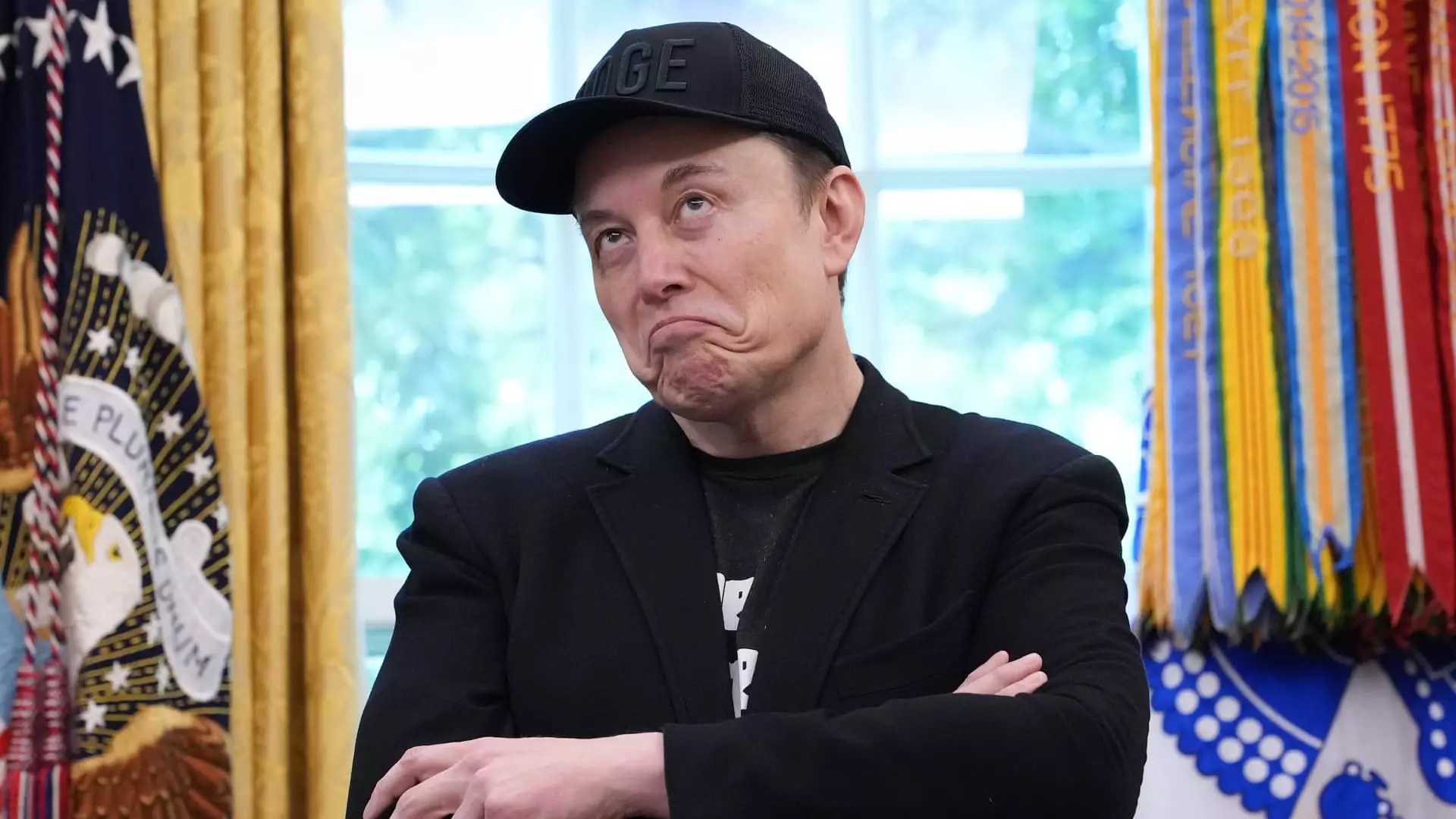Elon Musk’s recent comments on the U.S. government’s spending initiatives reveal a rare, yet passionately critical perspective from one of America’s most influential entrepreneurs. Instead of remaining silent amidst political debates, Musk has openly voiced his disapproval of the recent spending bill passed by Congress, highlighting the potential long-term consequences of unchecked national debt. His stance underscores a growing concern among many in the business community who feel that fiscal recklessness jeopardizes future economic stability. Musk’s vocal opposition is rooted not solely in ideological disagreement but in a tangible fear of economic decline driven by policies that prioritize short-term gains over sustainable growth.
The Clash of Ideologies: Economics Versus Politics
Musk’s criticisms are also a reflection of a broader ideological battle: while politicians often justify large expenditures as necessary for immediate growth and social programs, entrepreneurs like Musk warn against sacrificing financial prudence. The bill, which injects trillions into the economy through tax cuts and increased spending, has been criticized for inflating the already massive national debt. The Congressional Budget Office warns of an alarming $3.4 trillion increase in debt over the next decade, a figure White House officials dismiss as partisan exaggeration. Musk’s comparison of the bill to “debt slavery” is provocative, but it also captures a fundamental truth — excessive debt burdens threaten future generations and economic freedom.
The Energy and Innovation Dilemma
What makes Musk’s stance particularly compelling is its focus on energy policies intertwined with economic decisions. The bill’s cuts to solar, wind, and electric vehicle subsidies directly impact Musk’s business empire, comprising Tesla, SpaceX, and other ventures. Musk’s outspoken criticism of policies that undermine renewable energy initiatives reveals a commitment not just to personal business interests but to a broader societal vision of sustainable innovation. His frustration over the removal of EV mandates and subsidies demonstrates how economic policies are not neutral; they influence technological progress and environmental commitments. Musk’s resistance highlights a crucial tension incurrent U.S. policy: the attempt to balance fiscal conservatism with the imperative of maintaining leadership in clean energy and technological advancement.
The Political Power Play and Market Reactions
Musk’s public critique isn’t merely a personal or ideological stance; it carries significant economic implications. His feud with former President Trump, especially over electric vehicle mandates, has seen Tesla’s stock fluctuate remarkably. The immense market cap loss in June following heated exchanges reflects how deeply intertwined corporate fortunes are with political narratives. Musk’s outspoken approach, while risky, underscores a belief that economic and environmental progress are too important to be sacrificed for short-term political gains. As society faces mounting fiscal challenges, Musk’s voice acts as a catalyst, urging policymakers to rethink priorities beyond election cycles and partisan battles.
In essence, Elon Musk’s criticisms are a wake-up call for America. His fierce opposition to reckless spending and prioritization of sustainable innovation challenges the nation to adopt a more responsible, long-term approach. By voicing concerns about the national debt, renewable energy cuts, and economic imbalance, Musk positions himself as both an entrepreneur and a truth-teller—advocating for a future where fiscal discipline and technological progress go hand in hand.

